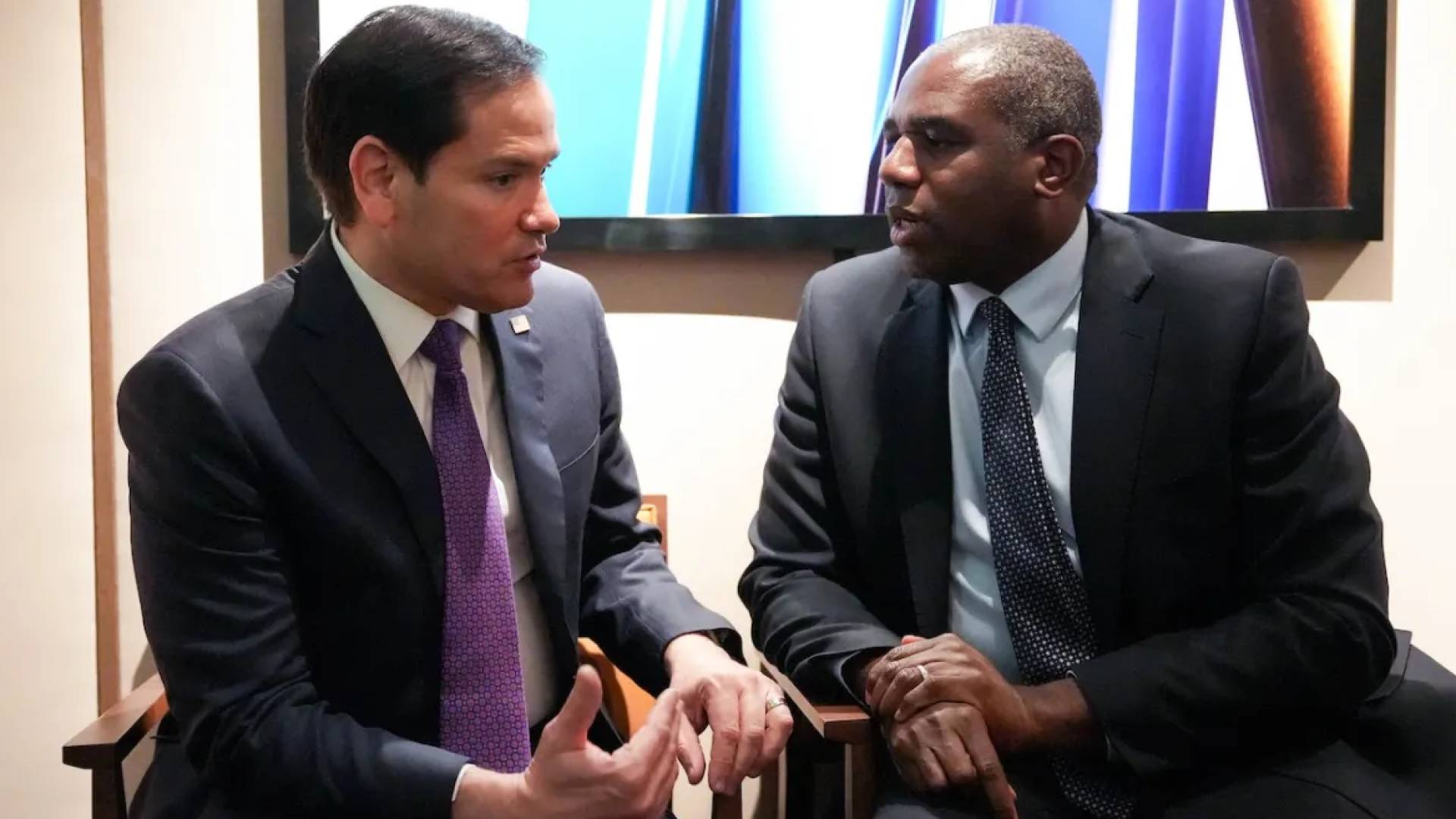UK’s Foreign Secretary David Lammy with United States Secretary of State Marco Rubio. (File photo)
British FM, in US, says “window now exists” for diplomacy with Iran
On the eve of European talks with Iran over its nuclear program, Britain's Foreign Secretary David Lammy said Thursday after meeting high-level US officials that there is still time to reach a diplomatic solution with Tehran.
Lammy met with US Secretary of State Marco Rubio and special envoy Steve Witkoff at the White House, before talks on Friday in Geneva with Iranian Foreign Minister Abbas Araghchi alongside his French, German and EU counterparts.
The diplomatic flurry came as European countries called for de-escalation in the face of “Israel's” bombing campaign against Iran's nuclear program, and as US President Donald Trump weighs up whether or not to join the strikes against Tehran.
"The situation in the Middle East remains perilous," Lammy said in a statement released by the UK embassy in Washington.
"We discussed how Iran must make a deal to avoid a deepening conflict. A window now exists within the next two weeks to achieve a diplomatic solution," Lammy said.
"Tomorrow, I will be heading to Geneva to meet with the Iranian foreign minister alongside my French, German and EU counterparts," the British minister said.
"Now is the time to put a stop to the grave scenes in the Middle East and prevent a regional escalation that would benefit no one."
The State Department said Lammy and Rubio had "agreed Iran can never develop or acquire a nuclear weapon."
European push for diplomacy
Araghchi earlier confirmed he would "meet with the European delegation in Geneva on Friday," in a statement carried by Iranian state news agency IRNA.
The talks are set to include Lammy, French Foreign Minister Jean-Noel Barrot and German Foreign Minister Johann Wadephul, as well as EU foreign policy chief Kaja Kallas.
Trump has said he is weighing military action against Iran's nuclear facilities as “Israel” pummels the country and Tehran responds with missile fire.
France, Germany, Britain and the European Union were all signatories of the 2015 nuclear agreement with Iran, which Trump sunk during his first term in office.
The EU's Kallas, in coordination with European countries, has insisted that diplomacy remains the best path towards ensuring that Iran does not develop a nuclear bomb.
On Wednesday, French President Emmanuel Macron said European nations were planning to suggest a negotiated solution to end the Iran-“Israel” conflict.
He asked his foreign minister to draw up an initiative with "close partners" to that end.
Barrot has been in regular touch with his German and British counterparts since “Israel” launched massive air strikes against Iran on Friday.
"We are ready to take part in negotiations aimed at obtaining from Iran a lasting rollback of its nuclear and ballistic missile programs," Barrot said.
“Israel” says its air campaign is aimed at preventing Iran from acquiring nuclear weapons.
Iran had been enriching uranium to 60 percent -- far above the 3.67 percent limit set by a 2015 deal with international powers, but still short of the 90 percent threshold needed for a nuclear warhead. Iran denies it is building nuclear weapons.




